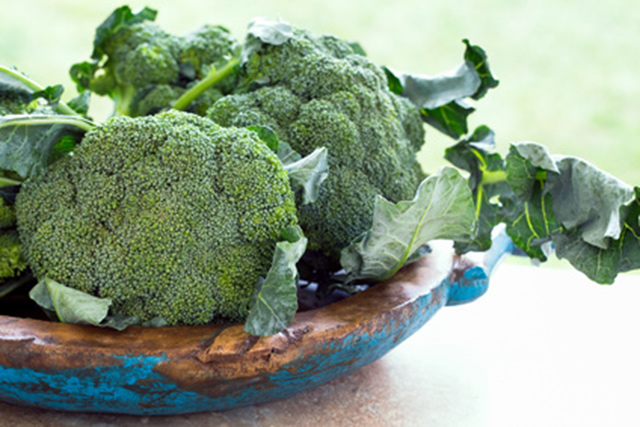There are so many reasons to eat broccoli. It is part of the cruciferous vegetable family, which means it is packed with nutrients, vitamins, and minerals for overall health. More and more studies show that broccoli leaves the new kale
Did you know that broccoli also has leaves that are very nutritious? Now Research shows that the health benefits of broccoli leaves may even rival kale.
Are broccoli leaves the new kale?
By weight, the statistics show that broccoli leaves are not as nutritious as kale. Kale does contain more calcium, potassium, and iron, and a bit more protein. However, broccoli leaves are champions when it comes to vitamin A.
The health benefits and uses of vitamin A in the body are many. According to the National Institutes of Health, vitamin A is important for healthy vision, the immune system, and reproduction. Vitamin A also helps the heart, lungs, kidneys and many other vital organs work the way they should.
Just one ounce of broccoli leaves contains 4480 IU of vitamin A, which is 90 percent of the recommended daily value. So if your doctor is recommending that you get more of this vitamin in your diet, broccoli leaves are the perfect solution.
Broccoli leaves have a taste similar to broccoli, with earthy and bitter notes. The Food Network recommends swapping out other leafy greens for broccoli leaves in sautees. They are also great when stir-fried, steamed, baked, and added to soups.
Note: None of the information in our website is intended to diagnose, treat, cure or prevent any illness or disease. The content on our website is for educational purposes only.
10 reasons to eat broccoli.
Broccoli sprout extract may treat autism better than drugs.
Broccoli and watercress may target cancer stem cells.
REFERENCES:
1. “Could Broccoli Leaves Be the Next Kale?” TakePart. TakePart, n.d. Web. 29 Aug. 2015.
2. “Turn Over a New (Broccoli) Leaf.” Healthy Eats. Food Network, 07 Feb. 2015. Web. 29 Aug. 2015.
3. “Nutrition Facts and Analysis for Broccoli, Leaves, Raw.” Self Nutrition Data. Self Nutrition Data, n.d. Web. 29 Aug. 2015.
4. “Vitamin A.” Office of Dietary Supplements. National Institutes of Health, n.d. Web. 29 Aug. 2015.

















